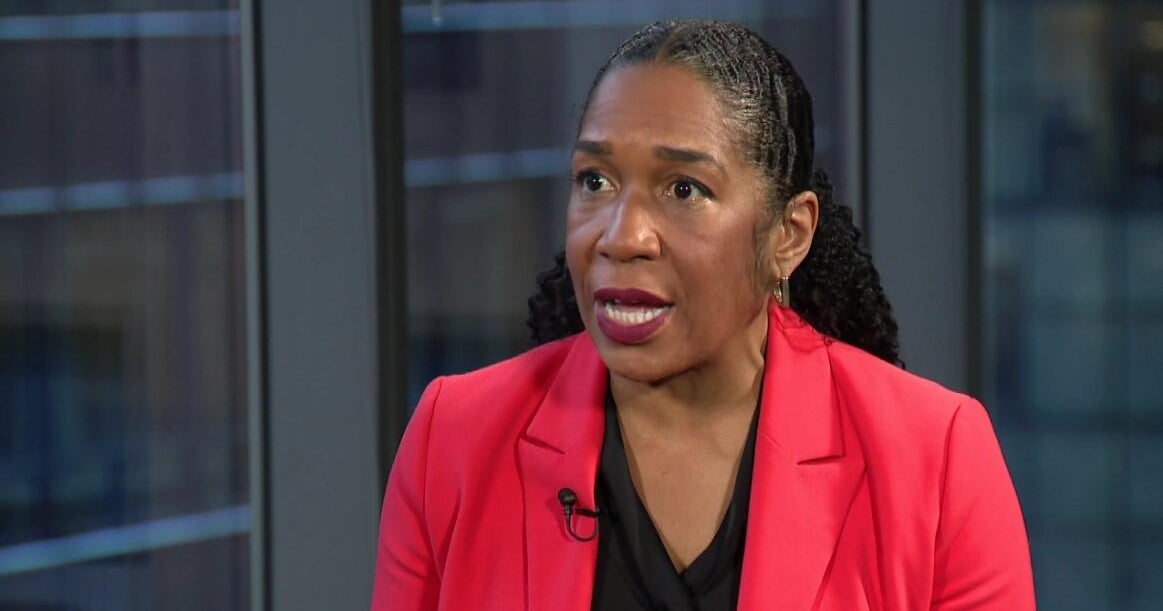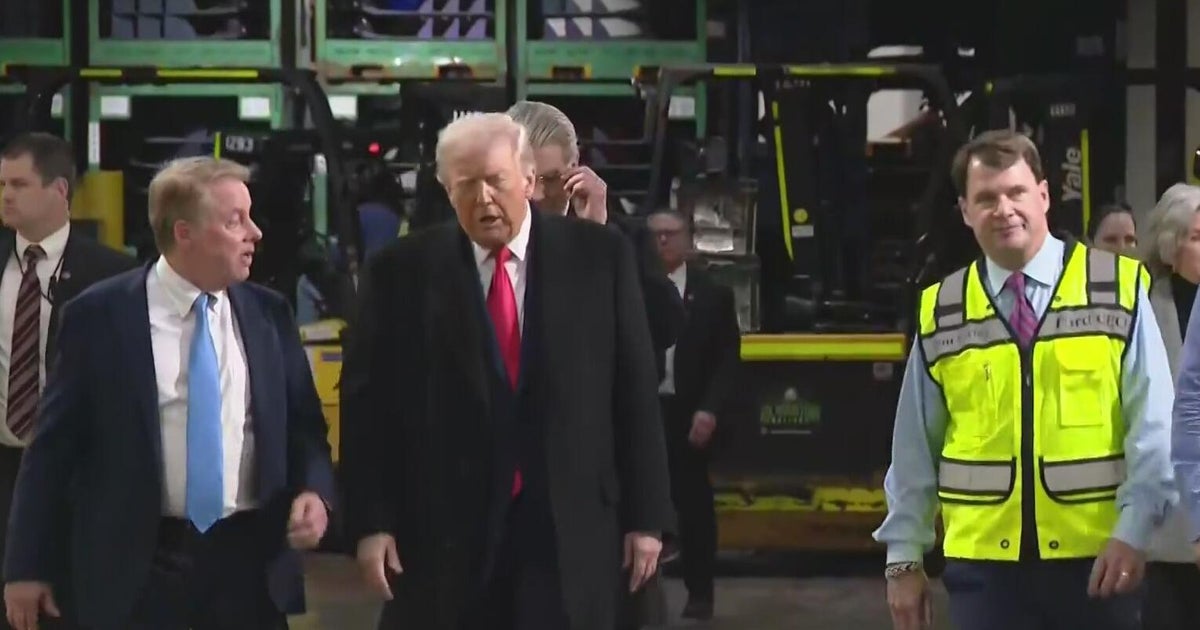Understanding The Crisis In Syria
MIAMI (CBSMiami) – As the United States and allies prepare for possible military strikes against Syria for the alleged use of chemical weapons against its own people, many Americans are asking what is exactly going on in Syria and why should the U.S. be involved?
Syria erupted into a civil war during the Arab Spring of 2011 and has seen increasingly brutal fighting ever since.
Syria itself is a relatively young country. It was drawn up during the 1920's by European colonial powers without regard for ethnic and religious divisions. The country has around 22 million citizens and is primarily dominated by the Sunni branch of the Muslim faith.
The current president of Syria, Bashar al-Assad, has been in charge of the country since 2000 when his father, Hafez, died. The al-Assad family has dominated the country for the last 30 years. But, al-Assad is Alawite, a Shiite faction of Islam that is in the minority in the country.
The dictatorship held by al-Assad has favored the Alawites and his own family over the Sunni majority in the country which has generated deep resentment. That in turn makes Alawites fear they will be slaughtered if al-Assad loses the current civil war, or at least face stiff punishment.
In many ways, the civil war in Syria has broken down along sectarian lines as the fight in Iraq did following the U.S. invasion in the early 2000's. Iraq was long dominated by a Sunni minority under Saddam Hussein and when he fell, the Shiite majority and Sunni minority began a brutal fight over leadership in the country.
Further complicating matters are Russia and Iran.
Russia blocks any United Nations Security Council resolution that could punish the Assad regime. Part of the reason is that Russia's last foreign military base outside the former Soviet Union is in Syria, according to the Washington Post.
Plus, Russia exports a great deal of weapons to Syria and the Russian economy needs all the money it can get most of the time. Losing Syria as a purchaser of weapons could also cripple a secondary market for Russian weapons as Syria moves the weapons to other groups.
The Iranian-factor resembles an argument that was used for years to justify the U.S. support for Saddam Hussein in the 1980's. At the time, some said keeping a Sunni in power in Iraq, Saddam, helped provide a buffer against the Shiite-led Iran through the bloody civil war between the two countries.
WEB VIDEO EXTRA: An In-Depth Explanation On The Crisis In Syria
Iran, a Shiite dominated country, doesn't want to lose a Shiite government in Syria for a variety of reasons.
Iran sees Syria as a sort of buffer zone that it can use to ship weapons to outside groups like Hezbollah and Hamas, according to the Washington Post. Keeping Syria open to Iranian weapons and business helps keep the Iranian government from becoming more isolated.
And as al-Assad has had to fight the rebels, he has turned more and more to both Russia and Iran for supplies to keep his dictatorship propped up.
The real fighting in the country began in 2011 during the so-called Arab Spring. Violence broke out in March, according to CNN, and calls quickly came for al-Assad to step down, which he refused to do. Since that time, violence has increased, as has the loss of life.
Brutal crackdowns in ethnic neighborhoods have been carried out by government soldiers including leveling entire areas.
Last summer, the rebel groups had reached the capital city of Damascus and the international community took note and late last year, the U.S. warned al-Assad not to use any chemical weapons in the ongoing civil war.
Syria's military allegedly used chemical weapons on August 21 and that set in motion the current crisis in the international community. The problem has been proving beyond doubt who actually fired the chemical weapons as some have claimed the rebels may have done it to provoke action against al-Assad.
Chemical weapons have been banned since the 1925 Geneva Protocol first prohibited the use of poisonous gas as a weapon in war. A 1993 treaty outlawed the production, stockpile, transfer, and use of chemical weapons, according to the Washington Post.
Syria, North Korea, Egypt, and Angola didn't sign on to the 1993 treaty. But, Syria did sign the 1925 Geneva protocol banning use of chemical weapons, according to the Post.
Still, chemical weapons have been used at many times since the 1925 protocol. Italy used mustard gas in Ethiopia during a 1935 invasion and Japan used different gasses during its invasion of China before and during World War II, according to the Economist.
Before al-Assad's alleged attack, Saddam Hussein used a multitude of gas attacks during the 1980's against Iran and ethnic Kurds in the northern part of Iraq. A more recent chemical attack happened in Tokyo when Aum Shinrikyo cultists released sarin gas in a Tokyo subway.
The White House claims al-Assad's alleged chemical weapon attack killed 1,429 citizens, including 426 children, according to the Post.
In Washington, the White House is facing a very skeptical bipartisan caucus in both the Senate and the House of Representatives. Democrats and some Republicans, like Senator John McCain and Speaker of the House John Boehner, have come out to support the need for military intervention in Syria.
But, skeptical Congress members and Senators have grave doubts about becoming involved in another Middle East conflict. Plus, the general public has a majority saying don't get involved in Syria's civil war, even if chemical weapons were used by al-Assad.
The scenarios both the pro-strike and anti-strike supporters are plotting out bring up grave consequences for the region and the world.
Those opposing military action ask what happens if the strikes are finished and al-Assad comes out on the other side stronger? Plus, they worry that if the U.S. gets involved it could jeopardize America's chief ally in the region, Israel, to retaliatory strikes from Syria and possibly Iran.
That could then spill out into a larger Middle East conflict that could jeopardize global security. There's also the question of what a conflict could do to both the U.S. and global economy.
There's also the question of why are chemical weapons the tipping point when al-Assad has killed hundreds of thousands with conventional weapons before he allegedly used the chemical weapons?
Plus, if the strikes did enough to cause the Syrian government to collapse, what would happen in the power vacuum that was left over and could another more dangerous group seize control of the country in the interim before a new government is put in place?
Those supporting the strikes, including the White House, warn that not making Assad pay for using chemical weapons runs the risk of giving a green light to him and other dangerous dictators that it's alright to use those types of weapons.
Secretary of State John Kerry brought up both Saddam Hussein and Adolf Hitler when making the case to intervene against Syria during Wednesday's hearings in the House.
Some Washington leaders like Senator Marco Rubio chided the administration for not acting sooner to help the rebels in the Syrian civil war during a Senate hearing on Tuesday. However, Senator Rubio would vote against authorizing the president to use military action in Syria.
It appears that even if the Senate were to approve a resolution authorizing the use of force; the GOP-led House of Representatives is not likely to do the same. That would then set up a conundrum for the White House over whether to act regardless of what Congress votes.
Technically, a president can make such a move, but Congress is the only constitutionally-allowed body to declare full war.
There are no easy answers to the Syrian question and with the options for the White House shrinking; the global crisis in the Middle East shows no signs of easing any time soon.







